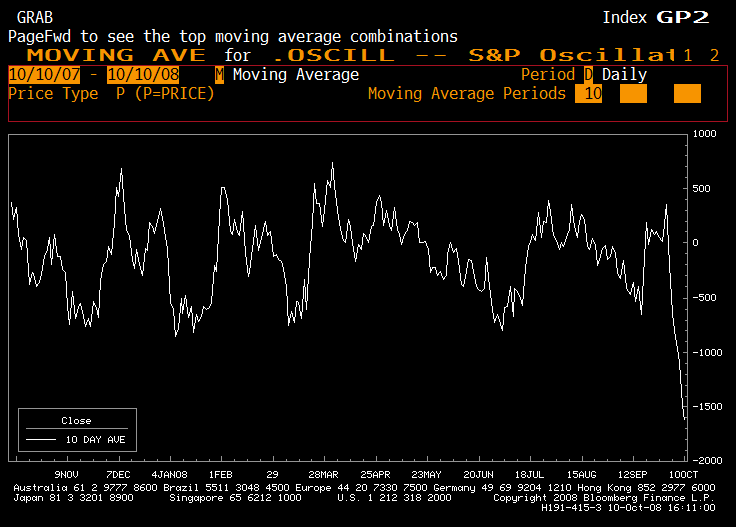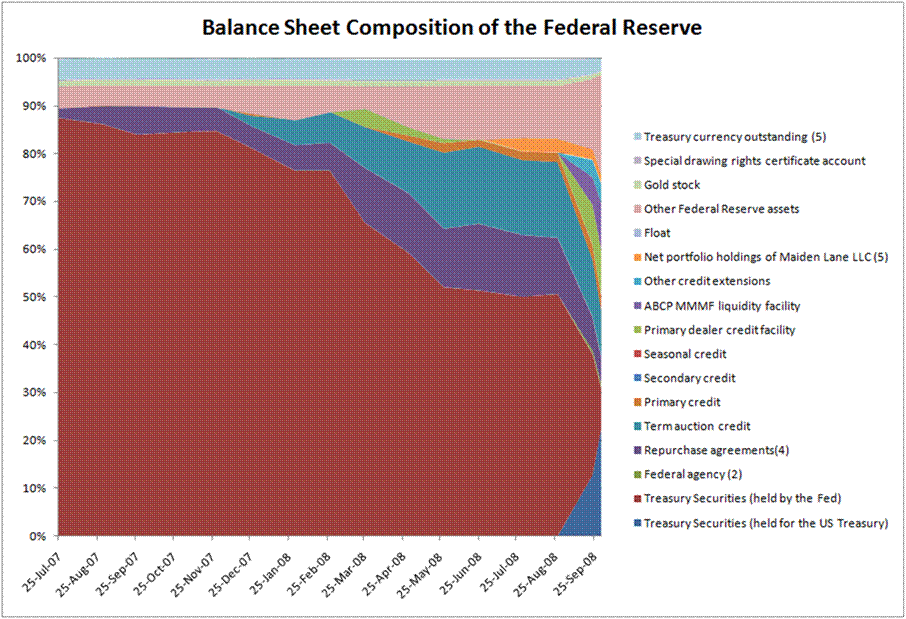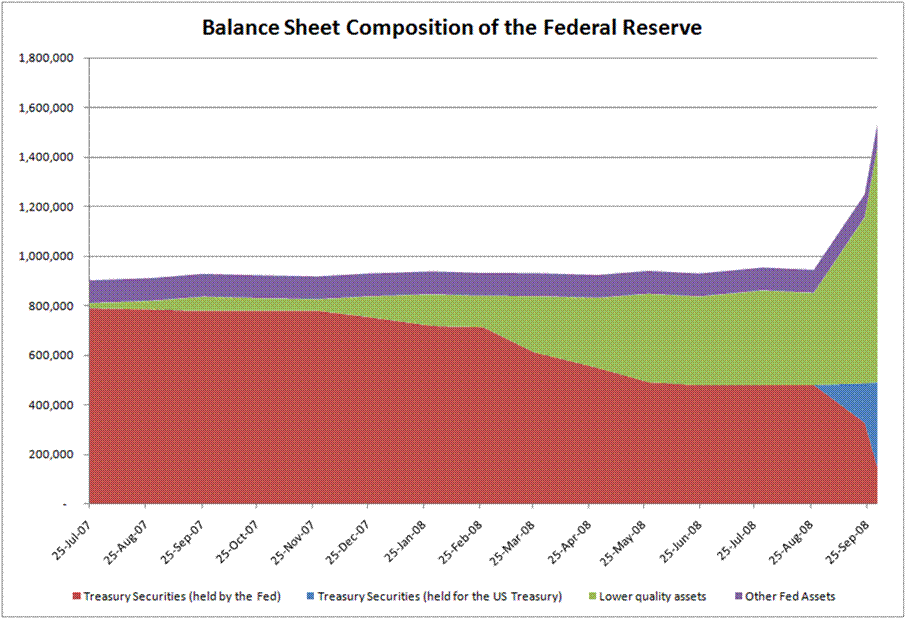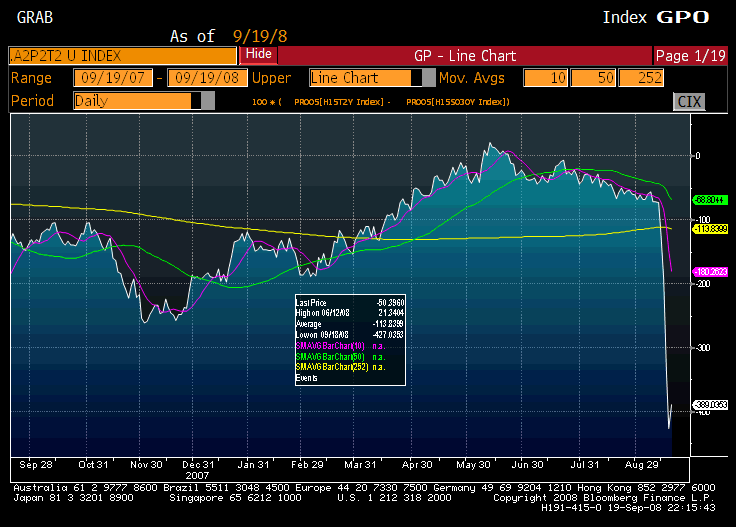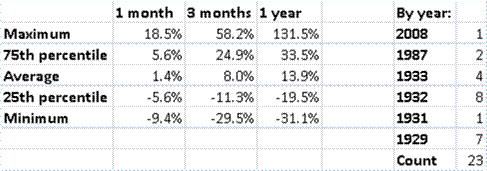Some people don’t like the concept of blame.? They view it as useless because it wastes time in looking for a solution.? I will tell you differently.? Blame is useful because it identifies offenders, which is the first step in eliminating the problem.? The trouble is that few have the stomach to get rid of the offenders.
So, as I traveled home from prayer meeting with my children last night, we listened to a radio show discussing the current credit crisis.? This was a good discussion, unlike many that I hear.? But the discussion (on NPR) eventually focused on “who should we blame?”? Okay, here is my incomplete version of who we should blame:
1) The Federal Reserve, especially Alan Greenspan.? For the past 20 years, we couldn’t let the economy have a severe, much less a moderate recession.? Rates were reduced before significant pain was felt by those who had borrowed too much.? The 1% Fed funds rate in 2003 was the pinnacle of that effort.? It created the ultimate bubble; there is nothing left to reflate in 2008 from easy monetary policy.
2) Congress and the Presidency — they encouraged undue leverage in a variety of ways:
a) Fannie, Freddie, the FHLB, and more: Everyone has gotta live in a single family home.? Gotta do that.? Thomas Jefferson’s ideal was that we should encumber future generations so that marginal buyers could live in houses beyond their means.? They compromised lending standards more and more, along with private lenders as the boom went on.
b) The SEC: in a fiat currency world, controlling the currency means controlling leverage of financial institutions.? The SEC waived leverage restrictions on the investment banks in 2004, leading to a boom, and a bust. Big bust.? Ginormous bust — how many large standalone investment banks are left?
c) Particularly the Democrats in Congress defended the GSEs as their own pet project.? I am not bashing the CRA here; I am bashing the goal of having everyone live in a house beyond their means.
d) We offered a tax deduction on mortgage interest, and a limited exemption on capital gains from selling a home.? There is no good reason for these measures.
e) And, the Republicans in Congress who favored deregulation in areas for which it was foolish to deregulate.? Much as I favor deregulation, you can’t do it if you have fiat money (unbacked paper money).? In that case you must restrain the growth of credit.
f) The Bush Jr. Administration — they did not enforce regulations over financial institutions the way that the law would demand on a fair reading.? Again, I’m not crazy about regulation, but unless you have a gold standard, or something like it, you have to regulate the issuance of credit.
g) Their unfunded programs with promises to the future; the states and Federal Government always promise today, and don’t fund it.? Hucksters.
3) Lenders steered borrowers to bad loans.? There was often implicit fraud, and in some cases, fraud.? The lenders paid their staff to do it.
4) Borrowers were lazy and greedy.? What? You’re going to enter into a transaction many times your income or net worth, and you haven’t engaged helpers or friends to advise you?? Regardless of the housing price mania, you should have gone slower, and done more homework.? Caveat emptor — you neglected that.
5) Appraisers were slaves of the lenders who wanted to originate and sell.
6) Those that originated MBS did not check the creditworthiness adequately.? They just sold it away.? Investment banks did not care where a profit was coming from in the short run.
7) Servicers did not demand a high price for their services, making it hard for them to service anything but solvent borrowers.
8) Realtors steered people into buying more than they could rationally afford; I’m not saying they did that on purpose, but their nature was to sell to get the highest commissions.
9) Mortgage insurers and financial guarantee insurers — because of the laxness of accounting rules, they were able to offer guarantees significantly in excess of what they could pay in the deepest crisis.
10) Hedge funds, investment banks and their investors — they demanded returns that were higher than what was sustainable.? They entered into businesses that would not survive difficult times.
11) Regulators let themselves be compromised by those following the profit motive.? Many hoped to make money after joining private industry later.
12) America.? We let ourselves become short-term as a culture, encouraging short-term prosperity, regardless of the cost.
13) Neomercantilists — they lent us money, because they wanted they export sectors to grow for political reasons.? This made our interest rates too low, encouraging overinvestment and overconsumption.
14) Average people who voted in Congress, and demanded perpetual prosperity — face it, we elect those that govern us, and there is the tendency in America to love the representative that brings home the pork, while hating Congress as a whole.? Also, we need to bear with recessions, and let them do their work, and not force our government to deal with them.
15) Auditors that did a cursory job auditing financial entities.? As the boom went on, standards got lower.
16) Academics who encouraged a naive view of diversification, and their followers who believe in uncorrelated returns.? In a bad economy, everything is correlated, and your statistics from a good economy don’t matter.
17) Pension and other funds that believed the academics.? It is amazing what institutional investors will fund, given the mistaken idea that correlation coefficients are stable.? Capitalistic economies are unstable by nature!? Why should we expect certain strategies to workallo the time?
18) Governmental entities that happily expanded government programs as the boom went on.? Now they are talking about increased taxes, rather than eliminating programs that are of marginal value to society.? Governments should not rely on increased taxes from capital gains, or real estate tax assessments.
19) Those that twitted “doom-and-gloomers,” and investors who only cared if markets went up.? It is hard to write about what could go wrong in the markets.? Many call you a wet blanket, spoiling their fun, and alleging that you are a short, or some sort of misanthrope.? The system is biased in favor of happy talk.? Just watch CNBC.
20) Me, and others who warned about the current crisis. Perhaps we weren’t clear enough.? Maybe our financial interests made us look like we were talking our books.? I know that I spent a lot of time on these issues, but in the short run, I was still an investor, trying to make money in the markets, hoping that what I feared would not occur.? Now I am getting my just desserts.
This is an incomplete list.? I invite you to add others to the list in your comments.


